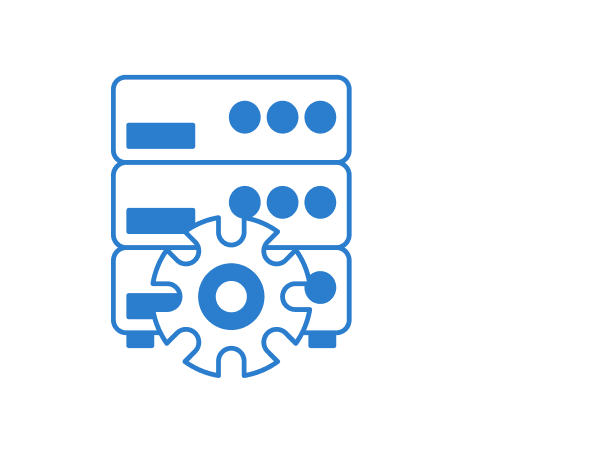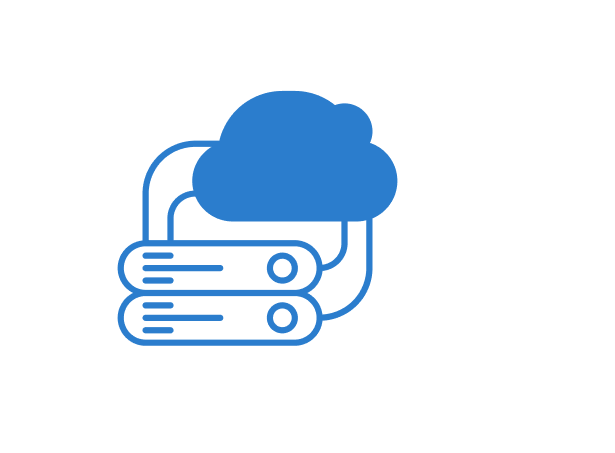Cloud Computing Services in Oklahoma City
Transform your business with secure, scalable cloud computing solutions that enhance productivity while reducing IT costs and infrastructure complexity.

Why Choose AND Group for Cloud Computing Services?
Secure | Cost-Effective | Reliable
We provide comprehensive cloud computing solutions that ensure your business is secure, cost-effective, and reliable for the future you envision. When you need help modernizing your business, protecting your data from security threats, and maintaining budget control, Advanced Network Design’s cloud computing services deliver proven results.
Because our cloud computing solutions are fully scalable and available for a flat-rate fee, you’ll never have to worry about unexpected IT costs. With no additional IT staff required and no initial capital investment needed, you can now direct your resources to more important, business-growth opportunities, leaving the technical complexities to our cloud computing experts.

How We Implement Your Cloud Computing Solutions Strategy

Optimization and Training
Ongoing support ensures your cloud computing solutions deliver maximum performance and value.

Secure Deployment
We carefully migrate your systems to secure cloud computing platforms with minimal disruption.

Migration Strategy
Our experts create a detailed roadmap for seamless cloud computing implementation.

Assessment and Planning
We evaluate your current infrastructure to design optimal cloud computing solutions tailored to your needs.
3 Reasons
3 Reasons To Rely on Our Cloud Computing Solutions in Oklahoma City
Over 25 Years of Cloud Computing Experience
Since 1998, we’ve been Oklahoma City’s trusted cloud computing provider. We’ve helped thousands of businesses successfully migrate to the cloud.
Cost-Effective Cloud Computing Solutions
We believe cloud computing shouldn’t break budgets. Advanced Network Design offers transparent pricing so you know exactly what you’re investing in.
Reduce Risk and Minimize Business Impact Through Expert Cloud Computing
Technology failures happen, but our cloud computing experts minimize damage. We respond promptly to ensure your business operations run smoothly.

See what our clients are saying about us
Kari Blissit Bargas
President | Monarch Marketing Group
Shelly Hooker
We have been using Advanced Network Design since March 2002. They have a great team. They have always taken great care of us in an efficient and timely manner over the past 22+ years. We will be forever grateful to them for helping us during March 2020 when we were all facing major changes due to Covid. They helped us get everything setup to work remotely, which enabled us to continue to service our clients without delay.
Debbie Gardner
FAQs
What are the benefits of cloud computing?
Cloud computing offers cost savings, scalability, accessibility, and security, providing a flexible and efficient solution.
What are the types of cloud solutions?
- Public Cloud: Shared resources such as Microsoft Azure, Amazon AWS, and Google Cloud.
- Private Cloud: Resources that are dedicated to a single organization which allows for more customization and control.
- Hosted applications/cloud: Applications accessible over the internet. Generally offered by software vendors.
- Hybrid Cloud: A mixed environment using a combination of Public Cloud, Hybrid Cloud, Hosted Applications/Hosted Cloud, and local resources.
What is a cloud computing server?
A cloud computing server is a remote, physical or virtual server, that hosts applications, data, and infrastructure services.
What are the main types of cloud services?
- Infrastructure as a Service (IaaS): Physical and virtual servers, storage, and networking (Microsoft Azure, AWS, Google Cloud Compute Engine, IMB Cloud).
- Platform as a Service (PaaS): Ready to use platform for application development without managing the underlying hardware and software (Microsoft Azure App Service, Google App Engine).
- Software as a Service (SaaS): Web-based applications accessed directly over the internet without the need to install additional software (Microsoft 365, Google Workspace, Salesforce).
Solve Your IT Headaches: Discover Cost-Effective Strategies and Proven Solutions
Unifying Your Digital World: Cloud-Native Networking & SASE for Oklahoma Businesses
The way Oklahoma businesses get things done has changed a lot. We’re not all just sitting in a single office
AI Phishing Detection Business Strategies: Protecting Your Oklahoma Business from Deepfakes
For years, we’ve all been trained to spot a phishing email. We look for bad grammar, suspicious links, and a
IoT Device Security Small Business: Protecting Connected Infrastructure in Oklahoma
Here’s something that keeps many Oklahoma business owners up at night: those convenient smart thermostats, security cameras, and wireless printers
Let us help you today!
Trusted managed services and computer support for businesses throughout Oklahoma City
Maybe you’re concerned with the current rising costs of your IT services, or maybe you are just running short on time because of your expanding business and need to hand over the reins of some services to someone else. Whatever your reason, with over two decades of experience, we can help you with quality IT services today.
Your business can save money and time today with our managed services, network solutions, IT support and more.
Connect With Us Locally
Providing Managed Services Expert IT Support in Oklahoma City and San Diego


Not Ready To Call Us Just Yet?
If so, we would at least like to send you a copy of our recently published report,
What Every Business Owner Must Know About Hiring an Honest, Competent, Responsive and Fairly Priced Computer Consultant.
Even if you aren’t ready to make a change right now, this book will give you important questions you should ask your current IT person to make sure that their policies, procedures and service standards won’t leave you vulnerable to expensive problems, lost data, viruses, hacker attacks and a host of other problems.
Simply fill out the form here and we’ll send you a copy today!
